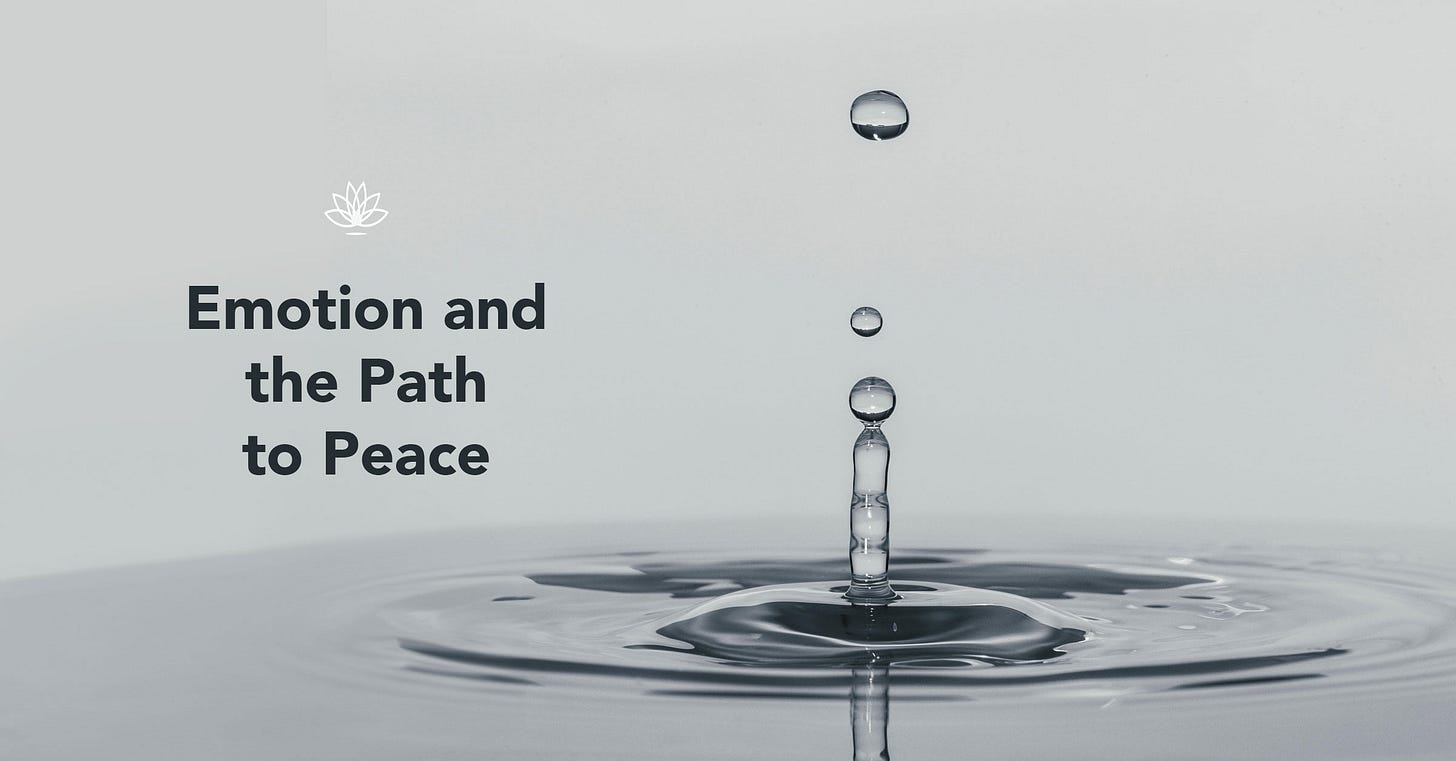Emotion and the Path to Peace
Although our experiences strongly suggest otherwise, emotions are not the result of situational dynamics. You aren’t angry because someone behaved inappropriately. You aren’t happy as a result of circumstances working out in a particular way.
This runs so counter to intuition and belief. But emotion is the result of a choice in the mind, having absolutely nothing to do with anything external to the self. In fact, what transpires in the "outside world" is merely a smokescreen, intentionally hiding the source of suffering.
All emotion serves the purpose of reinforcing a sense of "me", a centralized identity upon which various forces impinge. Emotion is the means to a particular end, self-hood. Each emotion is judgment experienced in the body, thereby defining a seeming reality.
And judgment, of course, is thought. If we have an attack thought, then we’ll experience some commensurate emotion such as displeasure or resentment. The initial thought behind every emotion is some form of "things are not as they ought to be." And behind that thought is the belief we are separate from others and separate from source.
Thus all emotion is the thought of separation projected into a name and body self we identify as me. Completely unrelated to anything that might be going on in our lives. Which helps us understand the lesson in A Course in Miracles that reads, "I am never upset for the reason I think."
Happiness is a choice, not a consequence. This shifts responsibility for peace away from the world at large and into a domain over which we have complete control. Learning how to return awareness to the mind transforms all experience of reality.
Join me in Thursday’s class where we’ll explore the purpose of emotions and how they can lead us into the mind of unconditional joy. I look forward to seeing you then.


